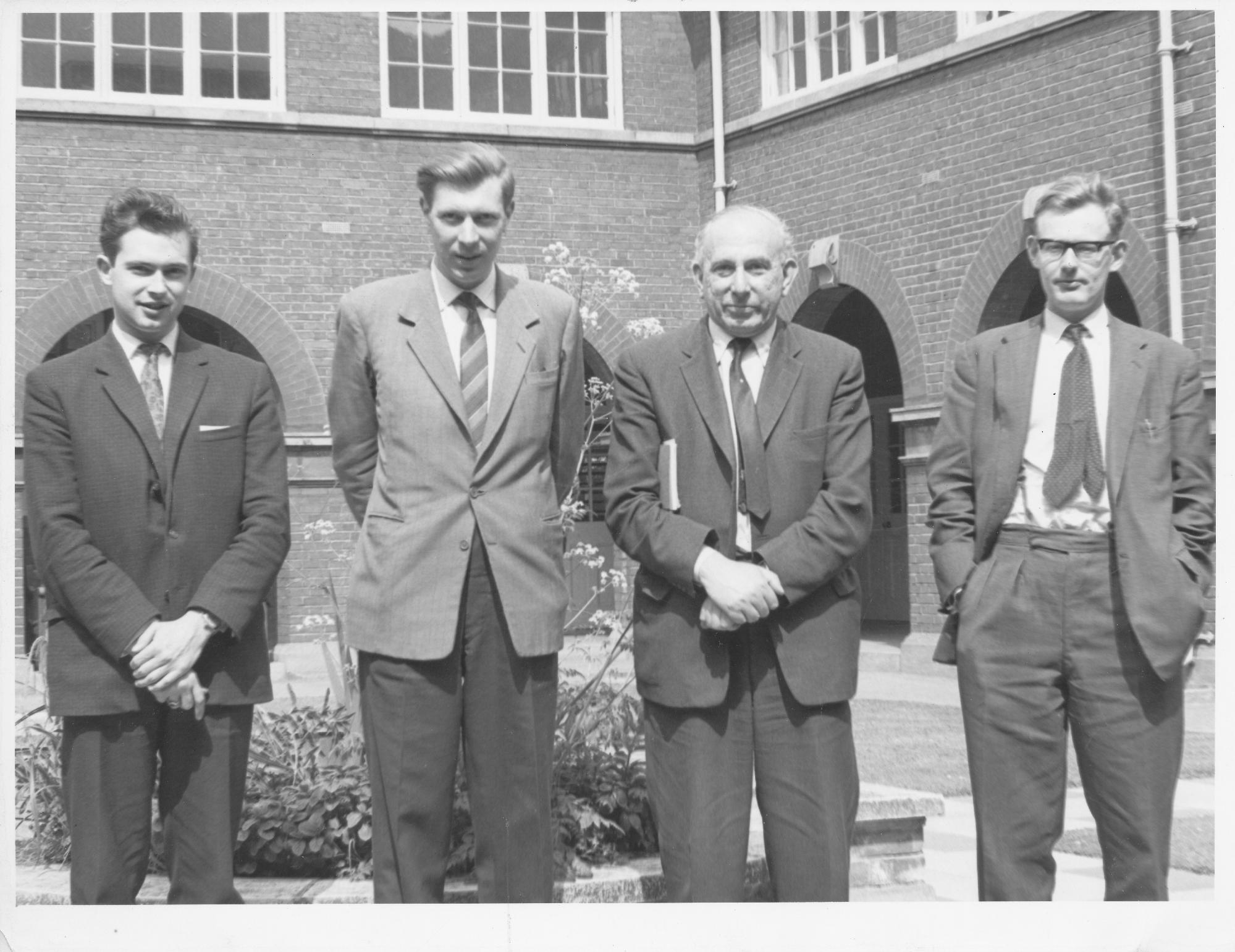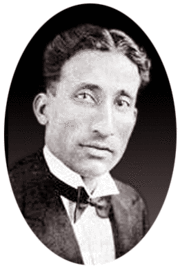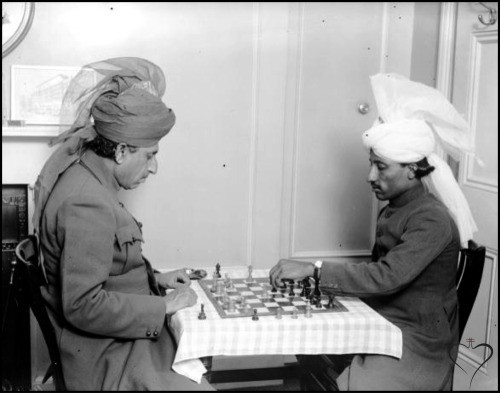BCN Remembers Michael John Haygarth (11-x-1934 27-iv-2016)
Here is an article from Yorkshire Chess History

Here is an obituary written by Steve Mann which was published on the ECF web site.

BCN Remembers Michael John Haygarth (11-x-1934 27-iv-2016)
Here is an article from Yorkshire Chess History

Here is an obituary written by Steve Mann which was published on the ECF web site.

BCN Remembers Michael John Haygarth (11-x-1934 27-iv-2016)
Here is an article from Yorkshire Chess History

Here is an obituary written by Steve Mann which was published on the ECF web site.

BCN Remembers Michael John Haygarth (11-x-1934 27-iv-2016)
Here is an article from Yorkshire Chess History

Here is an obituary written by Steve Mann which was published on the ECF web site.

BCN Remembers Michael John Haygarth (11-x-1934 27-iv-2016)
Here is an article from Yorkshire Chess History

Here is an obituary written by Steve Mann which was published on the ECF web site.


Death Anniversary of Malik Mir Sultan Khan (1905 25-iv-1966)
From The Oxford Companion to Chess by Hooper & Whyld:
Perhaps the greatest natural player of modern times. Born in the Punjab, he learned Indian chess when he was nine, was taken into the household of Sir Umar Hay at Khan, and learned the international game in 1926, Two years later he won the All-India Championship and in the spring of 1929 his patron and master took him to London. Within a few months he won the British Championship, returning to India shortly afterwards. In Europe in May 1930 he began a brief career that included defeats of many leading players.
A striking figure, of dark complexion, with a lean face and broad forehead, his black hair usually turban tied, he sat at the board impassively, showing no emotion in positions good or bad. He did not believe he possessed any special skill, rather that the player applying the greater concentration should win. In events of about category 10 Sultan Khan came second to Tartakower at Liege 1930, third (+5=2-2) after Euwe and Capablanca at Hastings 1930-1, and third ( + 6=3—2) equal with Kashdan after Alekhine and Flohr at London 1932, In events of about category 9 he came fourth or equal fourth at Scarborough 1930, Hastings 1931-2, and Berne 1932 ( + 10=2-3). Sultan Khan won the British Championship again in 1932 and 1933 and played first board for the British Chess Federation in the Olympiads of 1930, 1931, and 1933. In match play he defeated Tartakower (+4=5—3) in 1931 and lost to Flohr ( + 1=3—2) in 1932. At the end of 1933 he went back to India at the bidding of his master. When Sir Umar died Sultan Khan was left a small farmstead near his birthplace, and there he lived out his days. Apparently he had few regrets, A friend visiting him in 1958 found him sitting quietly under the shade of a tree smoking his hookah, chatting with neighbouring farmers while the womenfolk did the work.
In the Indian game of his time the pieces were moved as in international chess but the laws of promotion and stalemate were different, castling was not permitted, and a pawn could not he advanced two squares on its first move. The game opened slowly with emphasis on positional play rather than tactics, and not surprisingly Sultan Khan became a positional player. He had few peers in the middle-game and was among the world’s best two or three endgame players, but he never mastered the openings which, by nature empirical, cannot be learned by the application of common sense alone*
When Sultan Khan first travelled to Europe his English was so rudimentary that he needed an interpreter. He suffered from bouts of malaria and, in the English climate, from continual colds and throat infections, often turning up to play with his neck swathed in bandages. Unable to read or write, he never studied any hooks on the game, and he was mistakenly put in the hands of trainers who were also his rivals in play. Under these adverse circumstances, and having known the international game for a mere seven years, only half of which was spent in Europe, Sultan Khan nevertheless became one of the world’s best ten players. This achievement brought admiration from Capablanca who called him a genius, an accolade he rarely if ever bestowed on anyone else.
R. N. Coles, Mir Sultan Khan (rev, edn, 1977) contains 64 games.
In the March issue of CHESS for 1963, (Volume 28, Number 427, pp.147-155) William Winter wrote this:
The most colourful figure of my time was unquestionably Mir Sultan Khan who appeared in the chess firmament in 1929, blazed like a comet for nearly five years, and then disappeared as suddenly as he had come.
His origins like his end were wrapped in mystery. As far as I could gather he came of generations of Indian peasants who played the native form of chess under a tree in some remote village in the Punjab. Taken under the protection of Sir Umar Hyat Khan he learned the European game, and scored an overwhelming victory in the first Indian championship in which he played. When his patron, Sir Umar, was appointed to an official position in England, he brought Sultan in his train with the object of pitting him against the leading players of the world.
Yates and I were engaged to put him through his paces. I remember vividly my first meeting with the dark skinned man who spoke very little English and answered remarks that he did not understand with a sweet and gentle smile. One of the Alekhine v Bogolyubov matches was in a progress and I showed him a short game, without telling
him the contestants. “l think” he said, “that they both very weak players.” This was not conceit on his part. The vigorous style of the world championship contenders leading to rapid contact and a quick decision in the middle-game, was quite foreign to his conception of the Indian game in which the pawn moves only one square at a time.
Yates and I soon discovered that although he knew nothing of the theory of the openings, his middle-game strategy showed great profundity and his endings were of real master class. In a small double-round tournament for him at the Gambit Café, in which the other players were Yates, Conde, and myself, he did badly, but his Indian record was sufficient to gain him entry to the British Championship held that year at Ramsgate. Few thought that he had a chance of reaching the top half of the table, particularly when he lost in the first round to the Rev. F. E. Hamond. Then however he had an astonishing run of successes and confounded his critics by coming in first. It must be confessed that he was extremely lucky. Drewitt, usually one of the steadiest players, put his queen en prise to a pawn; I allowed him to force a stalemate in an ending in which I was two pawns ahead, and other competitors made similar queer blunders.
A wit suggested that he exercised some oriental hypnotic powers over his rivals, only Hamond, as a parson, being superior to the malign influence. I certainly never remember a championship with so many blunders – probably due to the excessive heat. Sultan created a sensation at Ramsgate in other ways than his chess. He always appeared in flowing white robes and was accompanied by two attendants similarly clad, one to write down his score and the other to supply him with the lemonade which he drank continuously. The latter had to be withdrawn after spilling a glass of the noxious beverage over the trousers of one of the competitors.
The tournament was played in August when Ramsgate was filled with holiday-makers and it may be imagined that Sultan and his retinue were one of the centres of attraction, particularly to the juvenile element. Every day he was accompanied to the congress by a horde of yelling children who, unless the door-keepers were very vigilant, did not stop at the entrance. The noise occasioned by their expulsion from the playing room may have had something to do with the blunders.
Sultan soon showed that this was no flash in the pan for at the Hastings congress (1930-1931) he beat Capablanca, the first game the almost invincible Cuban lost in this country. At the Team Tournament at Hamburg (1930) he also did extremely well on the top board against the best continental opposition though his apparent lack of any intelligible language annoyed some rivals. “What language does your champion speak?” shouted the Austrian, Kmoch, after his third offer of a draw had been met only with
Sultan’s gentle smile. “Chess” I replied, and so it proved, for in a few moves the Austrian champion had to resign. (See a letter to CHESS from Han Kmoch at the end of this article).
From this time onward Sultan went from strength to strength. He won two more British championships and was also highly successful in international events, both in Team Tournaments and individual contests. His greatest achievement was probably his successful match against Tartakover. He soon put off his native dress in favour of more normal apparel but apart from that he remained to the end the inscrutable Oriental. What ideas, if any lay behind that dark impassive face? It was impossible to say, for all the time I knew him he never spoke of any subject but chess. He gradually acquired a knowledge of English and finally spoke quite well. In order to study the chess magazines he also learned to read, but writing was beyond him. I often wrote his letters for him including some to a girl friend whose acquaintance he had made in Hyde Park. The lady seemed to like them.
By 1933, when he won the championship for the last time, he must have been one of the first half dozen or so best players in the world. The highest honours seemed open to him and then ! – just as suddenly as he appeared, he vanished. His patron, Sir Umar, relinquished his post and returned to India taking Sultan with him, and nothing has been since heard of him. He may be dead, but in that case I think the news would have leaked out. I fancy myself that he can still be seen sitting under a tree in some remote village in the Punjab playing the game of his forefathers. If this is so I wonder if he ever dreams of his five years in the West.
and here is a letter from Hans Kmoch following Winter’s memoirs:
Not that it matters, nor that I would cast any blame on the later William Winter whom I knew as a perfect gentleman. It is only for the sake of curiosity that I ask permission to comment on Winter’s story concerning my game against Sultan Khan.
I never asked Winter or anybody else what language Sultan Khan spoke. Nor did I shout (I never do). Sultan Khan and I had met before. What little conversation there was between us was done in English of which we both had a command sufficient for the purpose.
Winter, being not asked, had no opportunity to reply “Chess” or anything else.
I did not offer a draw three times, nor did Sultan Khan, who never smiled, meet my offers with a smile. Nor again did I resign a few moves later. And ! was not the Austrian Champion (contests have not been held at all in my active time).
Sultan Khan had White: we played a Giuoco Piano. After a small number of moves, probably 18 or so, a position was reached which I considered as fully satisfactory for Black.
I offered a draw so as to gain time for my work as a reporter. (I used to be very strict in never offering a draw to anybody unless my position, to the best of my understanding, was fully satisfactory).
Sultan Kahn accepted my offer outright. The game ending in a draw is a provable fact.
New York, 17th April 1963
Hans Kmoch
(we believe Mr. Kmoch! – Editor)
Sultan Khan-Flohr 3rd match game 1932 Caro-Kann
Defence, Exchange Variation
Here is his Wikipedia entry

Here is an excellent article from chess.com
Remembering Theophilus Harding Willcocks (19-iv-1912 14-iv-2014)
An innovator in both mathematics and fairy chess.
Here is a short article from chesscomposers.com
A short mention by Michael McDowell
Willcocks, Theophilus Harding
Die Schwalbe, 1967
Prize
What was Black’s previous move?
Here is an excellent article on squaring.net
An article from matplus.net